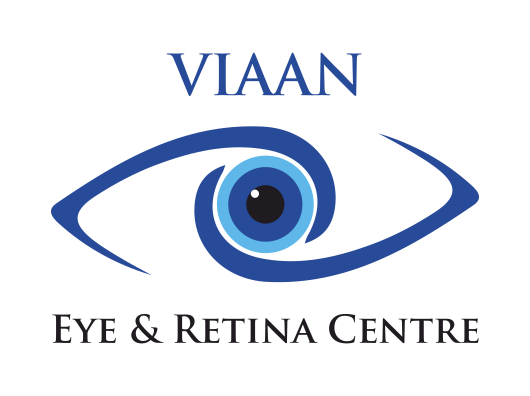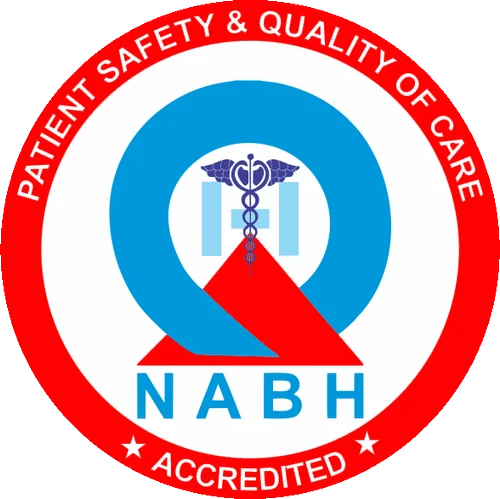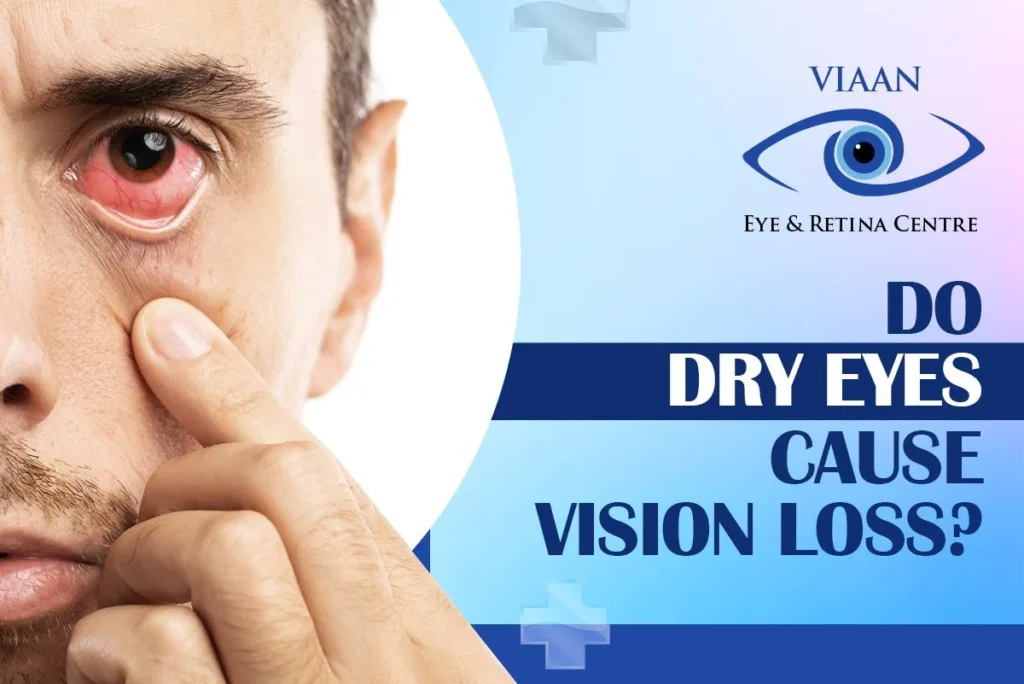Dry eyes, a condition marked by insufficient tears or poor tear quality, plague millions worldwide. While often dismissed as mere annoyance, the question looms: can dry eyes lead to vision loss?
This article delves into the complexities of dry eye disease and its potential impact on vision, providing insights for both understanding and managing this prevalent concern.
The Symphony of Tears:
Our tears are not just emotional outpourings; they are essential lubricants, protecting the cornea (the transparent dome covering the eye) and maintaining clear vision. Tears consist of three layers: an oily layer (lipid) to minimise evaporation, a watery layer (aqueous) for cleaning and nourishment, and a mucus layer (mucin) for spreading and adhesion. Disruption in any of these layers can lead to dry eye symptoms like irritation, burning, and blurry vision.
The Spectrum of Dry Eye Severity:
Dry eye disease exists on a spectrum, ranging from mild, episodic discomfort to severe, chronic inflammation. While most cases fall under the mild category, characterised by occasional irritation and easily managed with artificial tears, severe dry eye can have more concerning consequences.
Vision Loss: A Rare but Possible Outcome:
The good news is that dry eyes rarely lead to complete or permanent vision loss. However, in severe, untreated cases, complications can arise. Prolonged dryness can damage the cornea, leading to scarring and vision impairment. Additionally, dry eyes can increase the risk of corneal infections, which, if left untreated, can further compromise vision.
The Culprits Behind Dry Eyes:
Several factors can contribute to dry eye disease:
- Environmental factors: Dry air, wind, and prolonged screen time can evaporate tears faster.
- Medical conditions: Autoimmune diseases, thyroid issues, and certain medications can affect tear production.
- Lifestyle habits: Smoking, caffeine intake, and contact lens use can worsen dryness.
- Age: Tear production naturally decreases with age, making older individuals more susceptible.
Seeking Help for Dry Eyes:
If you experience persistent dry eye symptoms, consulting an ophthalmologist is crucial. Early diagnosis and management can prevent complications and ensure optimal vision health. Your eye doctor will assess the severity of your condition and recommend tailored treatment options, which may include:
- Artificial tears: Lubricating drops to supplement tear production.
- Punctal plugs: Tiny devices placed in tear ducts to slow tear drainage.
- Anti-inflammatory medications: To manage inflammation and improve tear quality.
- Lifestyle modifications: Reducing screen time, using humidifiers, and quitting smoking can significantly improve symptoms.
Living with Dry Eyes:
While dry eyes might not always directly threaten vision, they can undoubtedly impact daily life. By understanding the potential risks and seeking timely medical intervention, you can effectively manage your dry eyes and maintain optimal vision health. Remember, early diagnosis and consistent management are key to preventing complications and ensuring clear, comfortable vision for years to come.
Conclusion
While the risk of dry eyes directly causing complete vision loss remains low, their impact on vision health and quality of life cannot be ignored. Understanding the spectrum of dry eye severity, potential complications, and available treatment options empower us to strike a balance between managing discomfort and safeguarding our vision.
Remember, early diagnosis and consistent management are key. Schedule regular eye exams, discuss your concerns with your ophthalmologist, and diligently follow their recommendations. Embrace lifestyle modifications, explore treatment options, and leverage emerging technologies as they become available. With proactive care and informed choices, dry eyes can become a manageable condition, allowing you to experience the world’s wonders with clear, comfortable vision.
Beyond vision loss, remember:
- Dry eyes can significantly impact quality of life due to discomfort and irritation.
- New technologies and research offer promising advancements in dry eye treatment, providing hope for even more effective solutions in the future.
Take charge of your eye health. Make informed decisions, seek timely help, and prioritise your vision. Together, we can navigate the complexities of dry eye disease and ensure a brighter future for our eyes.
If you’re dealing with persistent dry eye issues and need some expert guidance, why not consider connecting with Viaan Eye & Retina Center? We’re not just any best eye hospital, we’re a top-notch team of specialists based in Gurgaon. Our mission is to help you tackle the challenges posed by dry eyes. Schedule regular eye check-ups, have an open chat about your concerns, and let’s figure out personalised solutions together.
Your eyes deserve the best care, and that’s exactly what we’re here for at Viaan Eye & Retina Center. Take the proactive step of getting in touch with us today. Let’s work together to make sure your vision stays clear and comfortable for the long haul.



